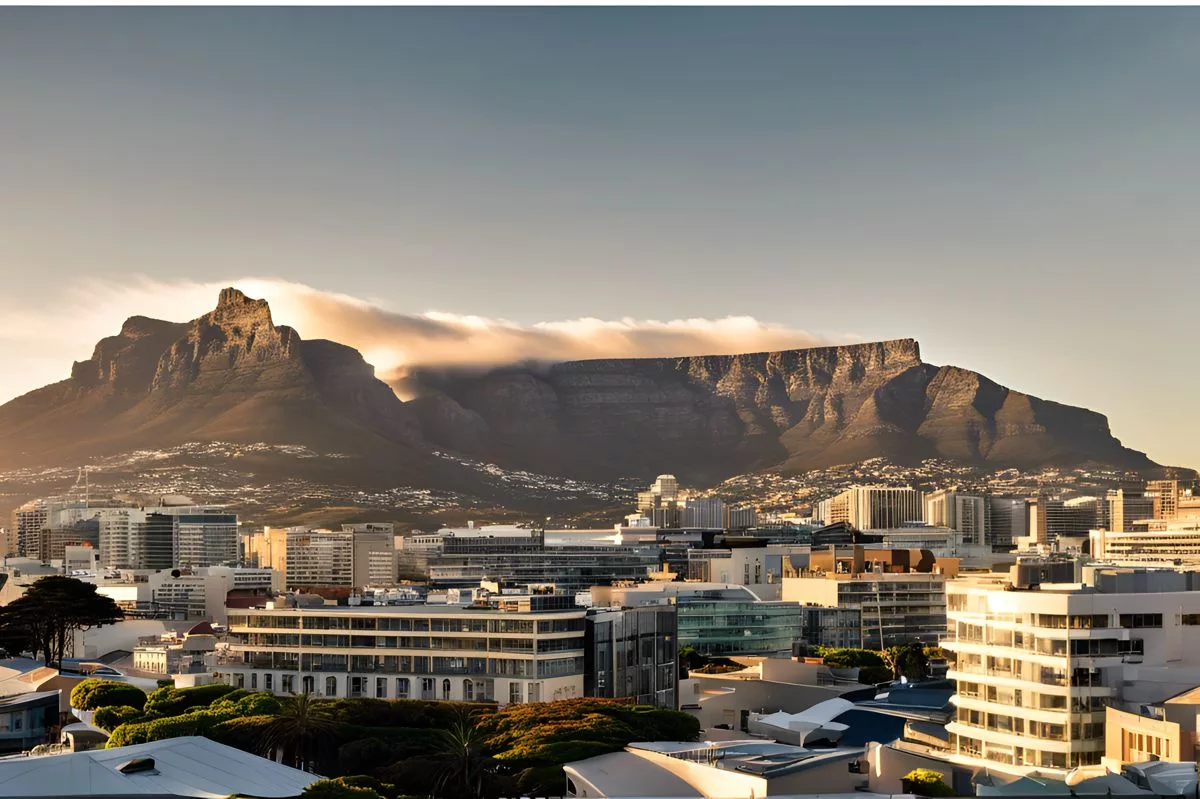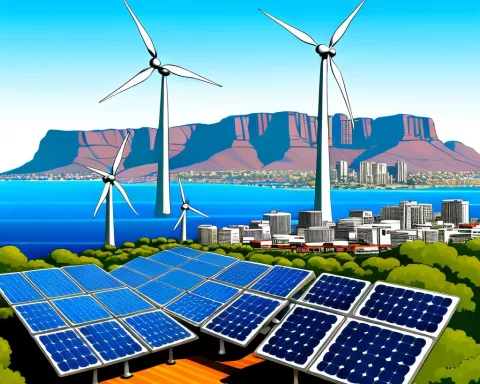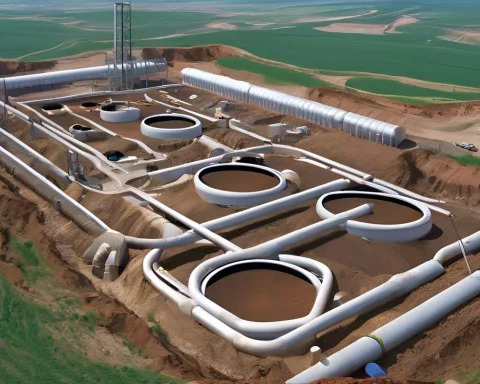Cape Town is leading the way in sustainable energy and waste management with their innovative waste-to-energy projects and carbon credits. By repurposing methane gas into electricity, the city is reducing emissions and producing power, while also earning carbon credits for their eco-responsibility. The profits from these projects are reinvested into the community and urban waste management schemes, demonstrating Cape Town’s commitment to fighting climate change and creating a more resilient city. This pioneering approach to environmental stewardship is setting a new standard for sustainable development.
Cape Town’s waste-to-energy projects and carbon credits are a pioneering step towards sustainable energy and a sustainable solution for waste management. The city’s landfill gas-infrastructure ventures have helped in repurposing methane gas into electricity, curbing emissions and producing power. The carbon credits earned from these projects are rewarded for eco-responsibility and are utilized in urban waste management schemes. The city’s investment in climate resilience and dedication to fighting climate change while reinvesting economic gains into the community make it an avant-garde approach to environmental stewardship.
A Pioneering Step Towards Sustainable Energy
In the contemporary epoch where notions of ecological preservation and sustainability are not just trendy terms, but moral obligations, Cape Town’s inventive waste-to-energy projects stand out as a touchstone for eco-friendly initiatives. Lately, the city has put itself at the vanguard of environmental transition by securing R36m from the sale of carbon credits, an impressive accomplishment that points to the triumph of its varied efforts in battling climate change.
This commendable feat is the consequence of rolling out a range of landfill gas-infrastructure ventures at Bellville, Coastal Park, and Vissershok landfill locations. These sites have morphed into a terrain of struggle against methane discharges, a potent greenhouse gas with a global warming potential that is roughly 25 times that of carbon dioxide. In repurposing this gas into electricity, the city has succeeded not only in curbing emissions but also in producing power, exemplifying the pinnacle of renewable energy use.
Carbon Credits: A Reward for Eco-Responsibility
Fundamentally, carbon credits symbolize a recognition for each tonne of greenhouse gas eradicated. They are procured through projects that are registered under the UN-sanctioned Clean Development Mechanism (CDM). A recent upswing in the demand for carbon credits in the South African market, surpassing supply by approximately 3.4 times, spurred the City Council to put their amassed carbon credits up for auction.
Cape Town’s Mayor, Geordin Hill-Lewis, disclosed the successful auction and asserted that the funds collected would be allocated to Urban Waste Management schemes. These projects aim to achieve a dual objective: to mitigate pollution and bolster environmental health. The R36m earned from the auction is, in Hill-Lewis’s words, a preliminary return, hinting at the possibility of more bountiful profits in the future.
Waste-To-Energy Projects: A Sustainable Solution
Apart from their immediate environmental advantages, the city’s waste-to-energy projects serve a dual role. Mayoral Committee Member for Urban Waste Management, Alderman Grant Twigg, elucidates that these ventures are self-reliant. The income from the sale of carbon credits, coupled with a decrease in mass electricity acquisitions from Eskom, signifies that these projects become financially self-sustaining over time.
To exploit the methane gas and transform it into functional electricity, the city has embraced a technique that entails the drilling of perforated pipes or ‘wells’ into the landfill sites to draw out the gas. Once removed, the gas is repurposed as fuel to generate electricity, thereby powering operations at the landfills.
Investment in Climate Resilience
Remarkably, Cape Town has devoted 40% of its R120bn 10-year infrastructure pipeline to bolster the city’s resilience against climate change. This includes significant investments in water and sanitation, as well as enhancements in waste management. In a noteworthy move, the city’s lower-income households and communities are also set to reap the benefits of 75% – or R9bn – of Cape Town’s R12bn infrastructure expenditure in 2024/25.
In the final analysis, Cape Town’s carbon credit sales and waste-to-energy initiatives are not merely a victory in sustainable energy use. They represent the city’s dedication to fighting climate change and maintaining environmental health, while also ensuring that the economic gains are re-invested into the community. This avant-garde approach to environmental stewardship is unquestionably a paradigm worth emulating globally.
1. What are Cape Town’s waste-to-energy projects?
Cape Town’s waste-to-energy projects involve repurposing methane gas from landfill sites into electricity, reducing emissions and producing power.
2. What are carbon credits and how is Cape Town earning them?
Carbon credits are earned for each tonne of greenhouse gas eradicated from projects registered under the UN-sanctioned Clean Development Mechanism (CDM). Cape Town is earning carbon credits from their waste-to-energy projects, which they have sold at auction for R36m.
3. How is Cape Town utilizing the earned carbon credits?
The R36m earned from the sale of carbon credits is being allocated to Urban Waste Management schemes, which aim to mitigate pollution and bolster environmental health.
4. How are Cape Town’s waste-to-energy projects financially sustainable?
The income from the sale of carbon credits, coupled with a decrease in mass electricity acquisitions from Eskom, make Cape Town’s waste-to-energy projects financially self-sustaining over time.
5. How much has Cape Town invested in climate resilience?
Cape Town has devoted 40% of its R120bn 10-year infrastructure pipeline to bolster the city’s resilience against climate change, including investments in water, sanitation, waste management, and 75% of infrastructure expenditure in 2024/25 going towards lower-income households and communities.
6. What is the significance of Cape Town’s approach to environmental stewardship?
Cape Town’s approach to environmental stewardship represents their commitment to fighting climate change and maintaining environmental health, while also ensuring that economic gains are reinvested into the community. This pioneering approach sets a new standard for sustainable development and is worth emulating globally.












